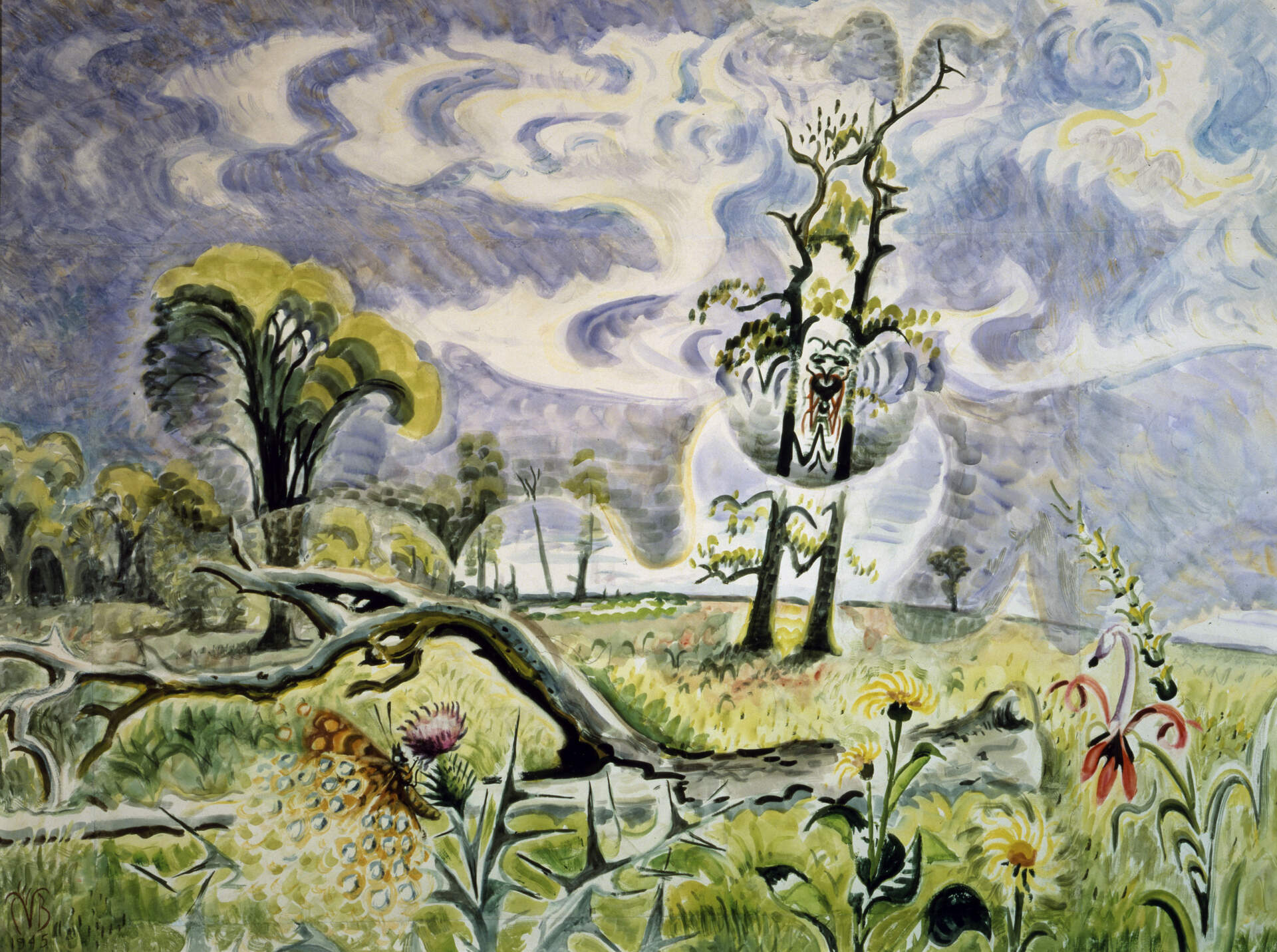
Charles E. Burchfield (1893-1967), Midsummer Caprice, 1945, watercolor, 35 x 47 inches, Collection of the Columbus Museum of Art, Ohio, Acquired through exchange: Bequest of Francis C. Sessions, 1991
Charles E. Burchfield, Journals, July 23, 1914
Saturday, Jul 23, 2022
Locusts become musical at twilight. To how few people is the metallic rasp of a locust, music. It and kindred sounds—i.e. such as have no delicacy of sound nor musical rhythm as the caw of a crow, the “yipe” of a sheitpoke, or the blung of a frog—are classed by a certain kind of uninterested people as harsh & discordant and not to be reckoned among nature’s beauties, forgetting that nothing in nature is ugly, when we consider that one of the greatest & perhaps the only element of beauty is usefulness. Music does not mean a wonderful sonata, nocturne, or drama played by wonderful instruments, or sung by great singers with wonderful voices, alone; music is much more far-reaching and all-embracing. Any sound that brings to the hearer’s mind the remembrance of some beautiful aspect of nature, some reminder of a happy event, or is in some way vitally related to the life of the hearer, is music of the divinest sort. Thus a shrieking freight whistle becomes music, the sound of tonneaus being hammered by sweaty Italians & Slavs, the cannon-like booms of die-presses dropping, or the rattle of wagons on pavements. And what is it perhaps that makes music of the cicada’s song? When hearing them, one sees in his “inward eye” an opaque blue sky, with a few heat-whitened clouds pasted to it, a long white dusty road stretching endlessly ahead, lined with dust yellowed plants and windblown trees. “Why is that beautiful? I can only feel the heat and am choked with the dust.” Then indeed are you hopeless, for you cannot dislike one part of nature and like another. Nature herself will not admit of a partial love—you must give yourself to her entirely, and when you do so, you will find that Nature will more than meet you halfway. And so we love the heat even when it causes our bodies to drag, our minds to sag and our throats to parch—because it is an expression of nature, behind which is god eternal.
Charles E. Burchfield, Journals, July 23, 1914
[In Ohio, many people referred to cicadas as locusts, even though they are entirely different.]